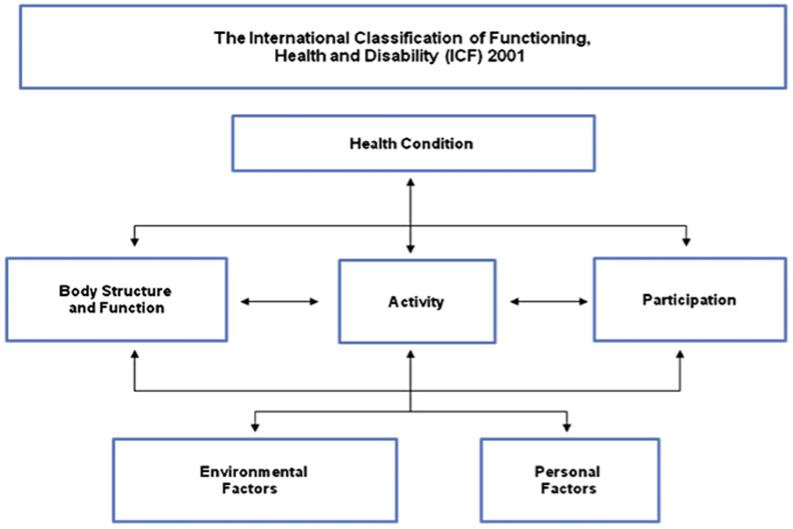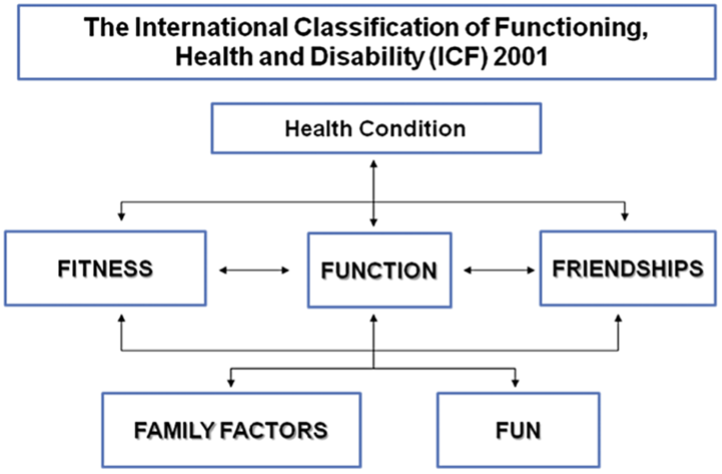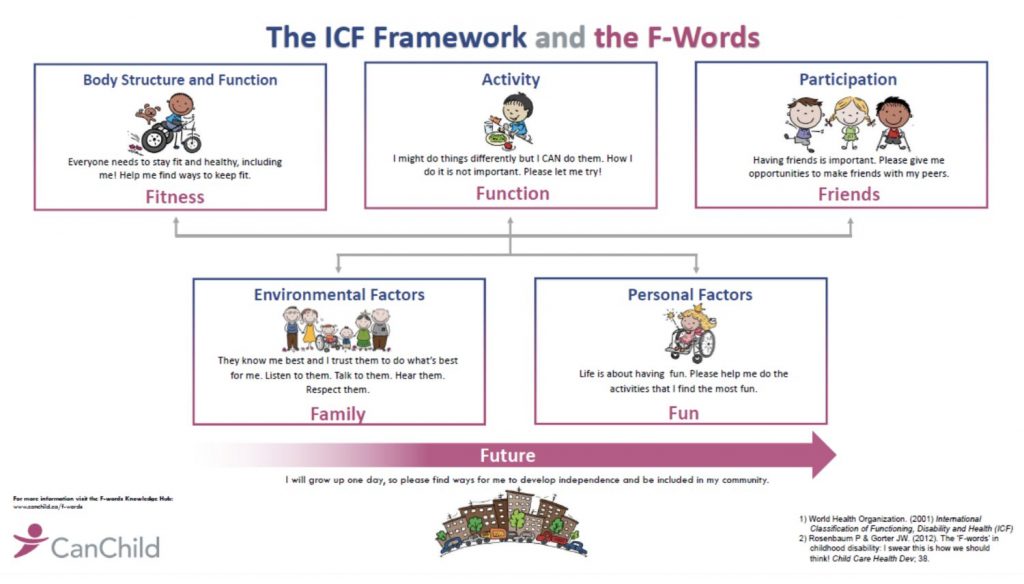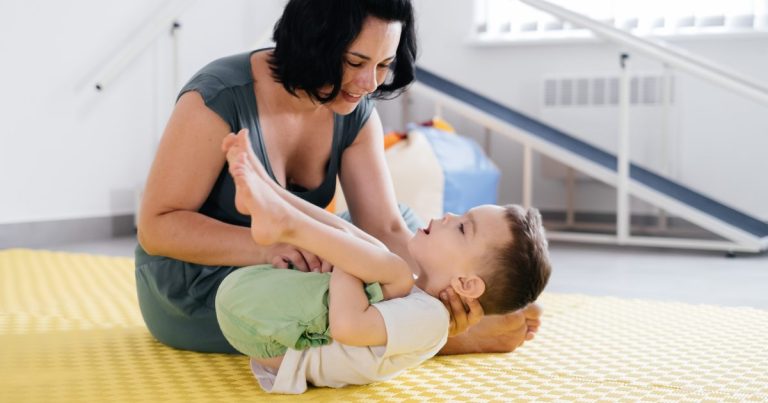Before I talk about the F-words, let me tell you something about the International Classification of Functioning, Disability, and Health (ICF) first. It is a framework put forward by the World Health Organisation providing people with an international standard to discuss health and disability and a common language for communication among health care professions and people with health conditions. The figure below shows you this tool allows us to look at a person with a health condition or disability as a whole person, not just what he or she cannot do (which we call ‘impairment’).

To explain this framework, let us take an example- my child has cerebral palsy affecting mainly both his legs. His high muscle tension (i.e. spasticity) in his legs makes it difficult to walk without his walking frame. Spasticity in his legs is a problem under ‘Body structure/function’ but with my child being unable to walk unaided in his school, it is a problem under ‘Activity’ as a primary school student (‘Participation’). The staircase in his school does not allow my child to move freely from the ground floor to the library on the second floor. This problem is part of the ‘Environmental factors’. My child is new to this school as we have just moved to Sydney recently. Hence, my child does not have many friends helping him during lessons and lunchtime. This is a problem under the ‘Personal factors’. As you can see, the way I explain this framework is very impairment-focussed, i.e. what my child cannot do!
Therefore, in 2011, Dr Peter Rosenbaum (a renowned paediatrician and researcher) and Dr Jan William Gorter (a renowned neurologist and researcher) in Canada have explained this framework with 6 F-words focusing in childhood disability – Function, Family, Fitness, Fun, Friends, and Future (https://www.canchild.ca/en/research-in-practice/f-words-in-childhood-disability).

- Function – what children do but the way things are done is not important
- Family – it is the very important ‘environment’ of all children
- Fitness – how children stay active and healthy including therapies and other recreational activities
- Fun – activities the children are involved in and enjoy themselves
- Friends – the friendships the children develop with their peers as part of essential social development as a person
- Future – both parents and children’s expectations and dreams for their future

You may also want to watch this short video to further explain these F-words: https://www.canchild.ca/en/research-in-practice/f-words-in-childhood-disability/f-words-videos
Unlike the ICF model, these F-words allow us to look at what a child ‘can do’, not ‘cannot do’. These F-words also broaden our thinking when managing a child with a disability by considering different aspects of the child, i.e. looking at the child as a whole person, not just their problemed legs. This model might be helpful to you when you are discussing goals of the NDIS plan of your child with your case manager and therapists.
You can learn more about the F-words and how you may use them when working on your child’s NDIS plan by browsing their website: https://www.canchild.ca/en/research-in-practice/f-words-in-childhood-disability






